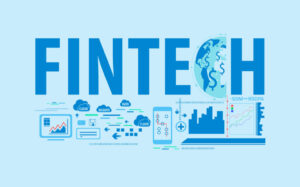Blockchain technology is one of the most important new concepts in fintech. The ability to offer secure, open, and decentralized solutions is transforming the way financial services operate globally. By eliminating the need for traditional intermediaries and streamlining processes, blockchain accelerates financial transactions, makes them more reliable, and reduces costs. This technology first gained attention when it powered cryptocurrencies like Bitcoin. Today, its applications extend far beyond digital currencies. Blockchain helps establish new business models, build trust between all parties in fintech, and improve the efficiency of global financial processes.
The Benefits of Decentralization in Financial Services
Decentralization is one of the key ways blockchain is transforming fintech. Previously, banks, clearinghouses, or payment processors had to review and approve money transfers before they could proceed. Blockchain eliminates this need by enabling computers to verify peer-to-peer transactions using a consensus method. This decentralized approach eliminates single points of failure, reduces transaction costs, and accelerates processing times. It also makes the financial system accessible to people without access to traditional banks, promoting global financial inclusion.
Enhanced Security and Fraud Protection
Security is a key consideration when conducting financial transactions, and blockchain offers an effective solution. Blockchain tracks every transaction by encrypting it, adding timestamps, and linking it to previous transactions. This creates an immutable data chain, making it difficult for hackers to alter transaction history or commit fraud undetected. The fintech industry uses blockchain to secure digital payments, prevent identity theft, and protect personal financial information. Smart contracts, self-executing agreements with predefined rules, enhance security by automating tasks and rendering them immutable.
Fast and Easy Transactions
In financial services, blockchain technology makes transactions faster and more efficient. Traditional banking systems sometimes require multiple processes and intermediaries to complete a transaction. These processes can cause delays, especially with cross-border transfers. Blockchain simplifies this process by allowing transactions to be executed directly between the two parties and confirmed almost instantly. This feature is especially beneficial for international transfers, enabling completion in minutes rather than days and at a reduced expense. This means businesses and individuals have faster access to funds and a smoother financial life.
Automated Processes and Smart Contracts
A major advantage of blockchain is smart contracts. They are transforming the fintech sector by automating processes. When specific conditions are met, these contracts automatically execute their terms, eliminating the need for third-party oversight. For example, a smart contract can release funds on a lending platform after collateral is confirmed and automatically enforce repayment limits. Insurance claims can be processed immediately after all relevant assessments have been completed. This makes financial services more efficient and open by accelerating processes, reducing administrative costs, and minimizing the risk of disputes.
More Openness, More Trust
Trust has always been crucial in financial services, and blockchain addresses this problem through its fully open nature. Because blockchain data is accessible to everyone on the network, transactions are instantly available without the need for a central authority. This openness reduces the risk of corruption, hidden fees, or data manipulation. In the fintech sector, open systems simplify the interaction between service providers and customers, as users can verify the accuracy of each transaction. This openness also offers significant benefits in supply chain financing, investment tracking, and auditing.
Lower Costs for Financial Operations
Another major advantage of blockchain for fintech is cost reduction. Traditional financial systems are expensive due to the involvement of intermediaries, complex verification processes, and manual administration. Blockchain reduces or eliminates many of these costs by enabling people to transact directly and automating the administration. For example, blockchain-based money transfer services can significantly lower transfer prices, far below those of traditional remittance services. Both new businesses and existing banks use blockchain to reduce operating costs while maintaining a high degree of security and accuracy.
Making Financial Services More Accessible
One of the most important aspects of blockchain in the fintech sector is its potential to reach people who lack access to banking services. Billions of people worldwide still lack access to basic financial services due to lack of or inadequate access to banking services. Blockchain-based solutions enable people to store, transfer, and receive money using only a smartphone and an internet connection. They no longer need a regular bank account. Thanks to decentralized finance (DeFi), people can now borrow, lend, and invest in ways that were previously impossible. Making financial services more accessible to everyone can help people escape poverty and promote economic development.
Conclusion
Blockchain is transforming the fintech sector, making financial services faster, more secure, more open, and easier. Because blockchain is decentralized, it eliminates unnecessary intermediaries, lowers costs, and strengthens trust between parties. Blockchain opens up endless possibilities for financial innovation. It can, among other things, enable instant cross-border payments, automate contracts, and promote financial inclusion. Despite the ongoing challenges like regulatory uncertainty and scalability, the potential benefits significantly surpass these obstacles. As the technology develops and blockchain adoption increases, it will continue to have a significant impact on the development of fintech.
FAQs
1. What is a simple definition of blockchain?
A blockchain is a digital ledger that records transactions in a secure, readable, and immutable form.
2. What are the benefits of blockchain for fintech?
It makes transactions faster, more secure, cheaper, and more open, and it enables the development of new financial products and services.
3. What does “smart contract” mean?
A smart contract is a digital agreement that automatically executes actions when specific conditions are met.
4. Is blockchain useful for people without a bank account?
Yes, blockchain makes it possible to access financial services with just a smartphone and an internet connection. This helps people without a bank account participate in the financial system.
5. Is blockchain only applicable to digital currencies?
No, the applications of blockchain in the financial world extend far beyond cryptocurrencies. It is also used for payments, investments, supply chains, and regulatory compliance.




